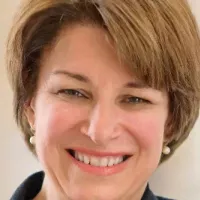Derby is a city and unitary authority area located on the River Derwent in Derbyshire, England. It is the namesake of Derbyshire, having been its original county town. Functioning as a unitary authority, Derby is administratively separate from the Derbyshire County Council. In 2022, the population of Derby was recorded as 263,490.
1900: Labour Representation Committee Gained Seat
In 1900, Derby was one of two seats gained by the Labour Representation Committee at the general election.
1907: Rolls-Royce Factory Opened
In 1907, Rolls-Royce opened a car and aircraft factory in Derby, marking the beginning of an industrial boom.
1910: Jimmy Thomas Succeeded Richard Bell
In 1910, Jimmy Thomas succeeded Richard Bell as MP.
1911: Derby Wireless Club Formed
In 1911, the Derby Wireless Club, the first radio club in the country, was formed by local engineers and experimenters.
1916: Zeppelin Air Raid
In 1916, Derby was targeted by German Zeppelin air bombers, resulting in five fatalities.
1921: Arthur Keily Born
In 1921, Arthur Keily, the marathon runner and Olympian, was born in Derbyshire and has lived his whole life in Derby.
1923: Midland Railway Part of LMS
In 1923, the Midland Railway became part of the London, Midland & Scottish Railway.
1927: All Saints Church Designated Cathedral
In 1927, All Saints Church was designated as a cathedral.
1927: Derby Cathedral Established
In 1927, Derby had a cathedral built.
1936: Derbyshire Wins County Championship
In 1936, Derbyshire County Cricket Club won the County Championship.
1936: Philip Noel-Baker Succeeded Jimmy Thomas
In 1936, Philip Noel-Baker succeeded Jimmy Thomas as MP.
1945: Post-War Housing Developments
In 1945, after the end of World War II, rehousing, council house building, and private housing developments continued on a large scale for approximately 30 years.
1950: Grand Theatre Closed
In 1950, the Grand Theatre in Derby, which had been open since 1886, closed.
1950: Constituency Division
In 1950, the single United Kingdom Parliamentary constituency of Derby was divided into Derby North and Derby South.
1955: Derbyshire County Council Moved to Matlock
In 1955, Derbyshire County Council moved its meeting place from County Hall in Derby to Smedley's Hydro in Matlock.
1956: John Osborne Writes 'Look Back in Anger'
In 1956, John Osborne wrote his play Look Back in Anger while living in Derby and working at Derby Playhouse.
1958: Diesel Locomotive Production
In 1958, production switched over to diesel locomotives completely.
1960: Arthur Keily broke the English Olympic record
In Rome in 1960, Arthur Keily broke the English Olympic record, recording a time of 2 hours 27 mins.
1961: Population Census
The census of 1961 recorded a population of 132,408.
1964: British Rail Research Division Opened
In 1964, the British Rail Research Division opened to study all aspects of railway engineering.
1967: Brian Clough Appointed Manager
In 1967, Brian Clough was appointed as manager of Derby County F.C.
1968: Borough Expansion
In 1968, the borough of Derby expanded, incorporating parts of Belper, Repton, and South East Derbyshire.
1968: Inner Ring Road Construction
In 1968, the skyline of the inner city changed with the construction of the inner ring road, including the demolition of St Alkmund's Church.
1969: Promotion to First Division
In 1969, Derby County F.C. achieved promotion to the Football League First Division.
1971: Population Increase
The census of 1971 recorded a population of 219,578.
1973: Brian Clough Resignation
In 1973, Brian Clough resigned as manager of Derby County F.C.
1974: County Borough Status Ended
Between 1889 and 1974 Derby was a county borough, independent from the county council. In 1974, it then became a lower-tier district council with the county council providing county-level services.
1975: Derby County League Title
In 1975, Dave Mackay guided Derby County to another league title.
February 1976: Partnership Treaty Signed with Osnabrück
On 17 February 1976, the partnership treaty between Derby and Osnabrück in Germany was signed.
June 1977: Derby Awarded City Status
In June 1977, Derby was awarded city status by Queen Elizabeth II.
July 1977: Queen Elizabeth II Presented Charter Scroll
In July 1977, Queen Elizabeth II presented the "charter scroll" in person on the steps of the Council House to the then Mayor Councillor Jeffrey Tillet.
1977: Derby Gained City Status
In 1977, Derby officially gained city status.
1980: Derby County Relegation
In 1980, Derby County faced relegation.
1981: Anti-Pasti's Debut Album Reaches Top 40
In 1981, Anti-Pasti's debut album The Last Call reached the top 40 in the UK album charts. The band came from Derby.
April 1982: Kelli Young Born
In April 1982, pop singer Kelli Young, who is best known as a member of the pop group Liberty X, was born in Derby.
1987: Top Flight Status Regained
In 1987, Derby County regained top flight status.
1987: Melissa Reid Born
In 1987, professional golfer Melissa Reid was born in Derby.
1989: Derby School Closed
In 1989, the former Derby School, one of the oldest schools in England, closed.
1990: Derby City RLFC Formed
In 1990, Derby City RLFC, a rugby league team, was formed.
1991: Derby in the Top Flight
In 1991, Derby County remained in the top flight since 1987.
1991: Déda Established
In 1991, Déda was established as a dedicated dance house in the East Midlands region.
1993: The Beekeepers Signed to Beggars Banquet Records
In 1993, The Beekeepers, a band from Derby, were signed to Beggars Banquet Records.
1994: Derby Grammar School Founded
In 1994, Derby Grammar School was founded.
1996: Derby in the Top Flight
In 1996, Derby County was in the top flight.
January 1997: White Town's "Your Woman" Reaches No. 1
In January 1997, the indie pop band White Town, fronted by Jyoti Mishra from Derby, saw their video for "Your Woman" reach No. 1 on the UK Singles Chart, featuring scenes from Derby city centre.
April 1997: Derby City Council Became Unitary Authority
On April 1, 1997, Derby City Council became a unitary authority, regaining its independence from the county council.
1997: Move to Pride Park Stadium
In 1997, Derby County moved from the Baseball Ground to Pride Park Stadium.
1998: The Beekeepers on Beggars Banquet Records
In 1998, The Beekeepers remained signed to Beggars Banquet Records.
2001: River Derwent Designated World Heritage Site
In 2001, a 24 km stretch of the River Derwent, where the Silk Mill is located, was designated a World Heritage Site.
2001: Derby Urban Area Population
The 2001 census recorded the population of the Derby Built-up Area as 236,738.
2002: Derby in the Top Flight
In 2002, Derby County was in the top flight since 1996.
2002: Derby Trailblazers Formed
In 2002, Derby Trailblazers were formed following the demise of British Basketball League side Derby Storm.
2003: Baseball Ground Demolished
In 2003, the Baseball Ground, the former home of Derby County Football Club, was demolished.
2003: University of Nottingham Medical School Opens
In 2003, the University of Nottingham opened a graduate entry medical school based at Royal Derby Hospital.
2004: East Midlands Airport controversy
In 2004, East Midlands Airport faced controversy over its decision to prefix its name with "Nottingham", due to its proximity to Derby, its location in Leicestershire, and the rivalry among Derby, Leicester, and Nottingham.
2004: Modern Research
In 2004, modern research provided evidence that Vikings and Anglo-Saxons co-existed in Derby.
2006: Airport name reverted
In 2006, Nottingham East Midlands Airport reverted to its previous name after the controversy.
2006: Matches Re-introduced at Chesterfield
In 2006, matches at Chesterfield were re-introduced for Derbyshire County Cricket Club.
2006: Peregrine Falcons Breeding
Since 2006, a pair of breeding peregrine falcons have resided in Derby Cathedral tower.
2007: Westfield Derby Opened
In 2007, Derbion opened as Westfield Derby after extension work costing £340 million.
2007: Derby in the Top Flight
In 2007, Derby County was in the top flight.
2007: Derby Grammar School Accepted Girls
In 2007, Derby Grammar School accepted girls into the sixth form for the first time.
February 2008: Derby Playhouse Closed
In February 2008, after a lengthy period of financial uncertainty, Derby Playhouse closed.
May 2008: Derby's Premier League Season Ends
In May 2008, Derby County's most recent spell as a Premier League club ended after just one season.
May 2008: Showcase Cinema de Lux Opened
In May 2008, the 12-screen cinema (Showcase – Cinema De Lux) opened at Derbion.
2008: Derby City RLFC Ground-Sharing with Derby RFC
From 2008, Derby City RLFC started ground-sharing with Derby RFC at Haslams Lane.
2008: QUAD Opened
In 2008, QUAD, a centre for art and film, opened in Derby.
June 2009: Allestree Woodlands School exchange
In June 2009, an exchange was originally based on a drama project by both Allestree Woodlands School and the Gymnasium Angelaschule in Osnabrück.
2010: Wards Moved to Mid Derbyshire
In 2010, Allestree, Oakwood, and Spondon wards were moved to the new constituency of Mid Derbyshire.
March 2011: Mercian Way Opened
On 16 March 2011, Mercian Way, the final section of the city's inner ring road, was opened to traffic.
2011: Melissa Reid Solheim Cup
In 2011, Melissa Reid was a member of the victorious European Team in the Solheim Cup.
2011: Census Measurement Redefined
In 2011, methods of measuring linked areas were redefined for the census, leading to the inclusion of Breadsall, Duffield, and Little Eaton in the Derby Built-up Area.
2011: St Peters Quarter Established
In the summer of 2011, the St Peters Quarter became Derby's second Business Improvement District.
2011: Derby Urban Area Population
The 2011 census recorded the total population of the Derby Built-up Area as 270,468.
June 2012: First Six Streets Arts Trail
In June 2012, the first Six Streets Arts trail took place in Derby.
2012: Derby University Takes Over Derby Theatre
In 2012, Derby University took over as sole operator of Derby Theatre.
2012: Anti-Pasti Reform
In 2012, the band Anti-Pasti reformed.
2012: School of Nursing and Midwifery Moved
In mid-2012, the University of Nottingham's School of Nursing and Midwifery moved to Royal Derby Hospital from its former home at the London Road Community Hospital.
January 2013: Sarah Brigham Appointed Artistic Director of Derby Theatre
In January 2013, Sarah Brigham was appointed artistic director of Derby Theatre.
2013: Six Streets Arts Trail
In 2013, the Six Streets Arts trail took place again in Derby.
March 2014: Intu Purchase of Derbion
In March 2014, Derbion was sold to Intu.
March 2014: Assembly Rooms Closed Due to Fire Damage
In March 2014, the Assembly Rooms, which hosted a full-scale programme of orchestral and other concerts presented by Derby LIVE, closed following fire damage.
July 2014: Derby's First Youth Mayor Elected
On July 7, 2014, Belal Butt was elected as Derby's first ever Youth Mayor.
December 2014: Enterprise Zone Status Announced
In December 2014, the government announced that Infinity Park Derby would gain enterprise zone status.
2014: Team Derby Wins National Badminton League
In 2014, Team Derby won the inaugural National Badminton League title in 2014–15.
2014: Triton Equity Takeover
In 2014, Triton Equity took over Alstom's manufacturing plant for large power plant boilers and heat exchangers.
2014: Anti-Pasti Reform Again
In 2014, the band Anti-Pasti reformed again with an altered line up.
2015: Derby Arena Opened
In 2015, the Derby Arena, containing a velodrome, opened and hosted the Revolution cycling series.
2015: First Derby Book Festival
In 2015, the first Derby Book Festival took place in late spring/early summer.
October 2019: Derby Book Festival Autumn Edition
In October 2019, an additional "Autumn edition" of the Derby Book Festival was first held.
2019: Derby High School Accepted Boys
In 2019, Derby High School began accepting boys into Year 7 and Year 12.
2020: Derby Representation
As of 2020, Derby is represented by three MPs.
2020: Maxïmo Park Album Chart Success
In 2020, Duncan Lloyd's band Maxïmo Park hit the number 2 spot in the U.K. album charts with the album Nature Always Wins.
October 2021: Derby Bids for UK City of Culture
On 8 October 2021, Derby was included in the longlist of bids to host UK City of Culture 2025.
November 2021: Derby Approves Rewilding Project
On 10 November 2021, Derby City Council approved plans for the UK's first large-scale urban rewilding project, in Allestree Park.
2021: Alstom Ownership
Since 2021, the Carriage and Wagon Works has been owned by Alstom, and continues to build trains.
March 2022: Derby Fails to Make Shortlist
In March 2022, Derby failed to make it onto the shortlist for UK City of Culture 2025.
May 2022: Museum of Making Short-listed for Award
On 10 May 2022, the Derby Museum of Making was short-listed for the 2022 Art Fund Museum of the Year award.
2022: Derby Population in 2022
In 2022, the population of Derby was recorded as 263,490.
March 2023: GBR Headquarters Announcement
On March 21, 2023, it was announced that Derby was to be the headquarters of Great British Railways.
2023: Derby High School Becomes Fully Co-Educational
In 2023, Derby High School is now fully co-educational, accepting both boys and girls in all years of school.
2024: Museum of Making Commendation
In 2024, Derby's Museum of Making received a special commendation in the European Museum of the Year Awards.
Mentioned in this timeline

Basketball is a team sport played on a rectangular court...

Elizabeth II reigned as Queen of the United Kingdom and...
Germany officially the Federal Republic of Germany is a Western...

Football is a family of team sports primarily involving kicking...

A car also known as an automobile is a wheeled...

Books are a means of storing information as text or...
Trending
6 months ago SAP's Stock Falls Amid Mixed Q2 Earnings & AI Concerns: Investor Outlook

Amy Klobuchar is a prominent American politician and lawyer Since she has served as the senior United States Senator from...

Joey King is an American actress known for her roles in Ramona and Beezus and The Kissing Booth film series...
2 months ago Jacksonville area anticipates rain as warm trend persists in Northeast Florida, Southeast Georgia.

8 months ago Wozniacki and Williams address retirement; Wozniacki eyes Paolini as French Open dark horse.

3 months ago Rybakina stuns Swiatek, Advances to WTA Finals Semifinal in Riyadh
Popular

Thomas Douglas Homan is an American law enforcement officer who...

William Franklin Graham III commonly known as Franklin Graham is...

Jupiter is the fifth and largest planet from the Sun...

XXXTentacion born Jahseh Dwayne Ricardo Onfroy was a controversial yet...

Kristi Noem is an American politician who has served as...

Instagram is a photo and video-sharing social networking service owned...
